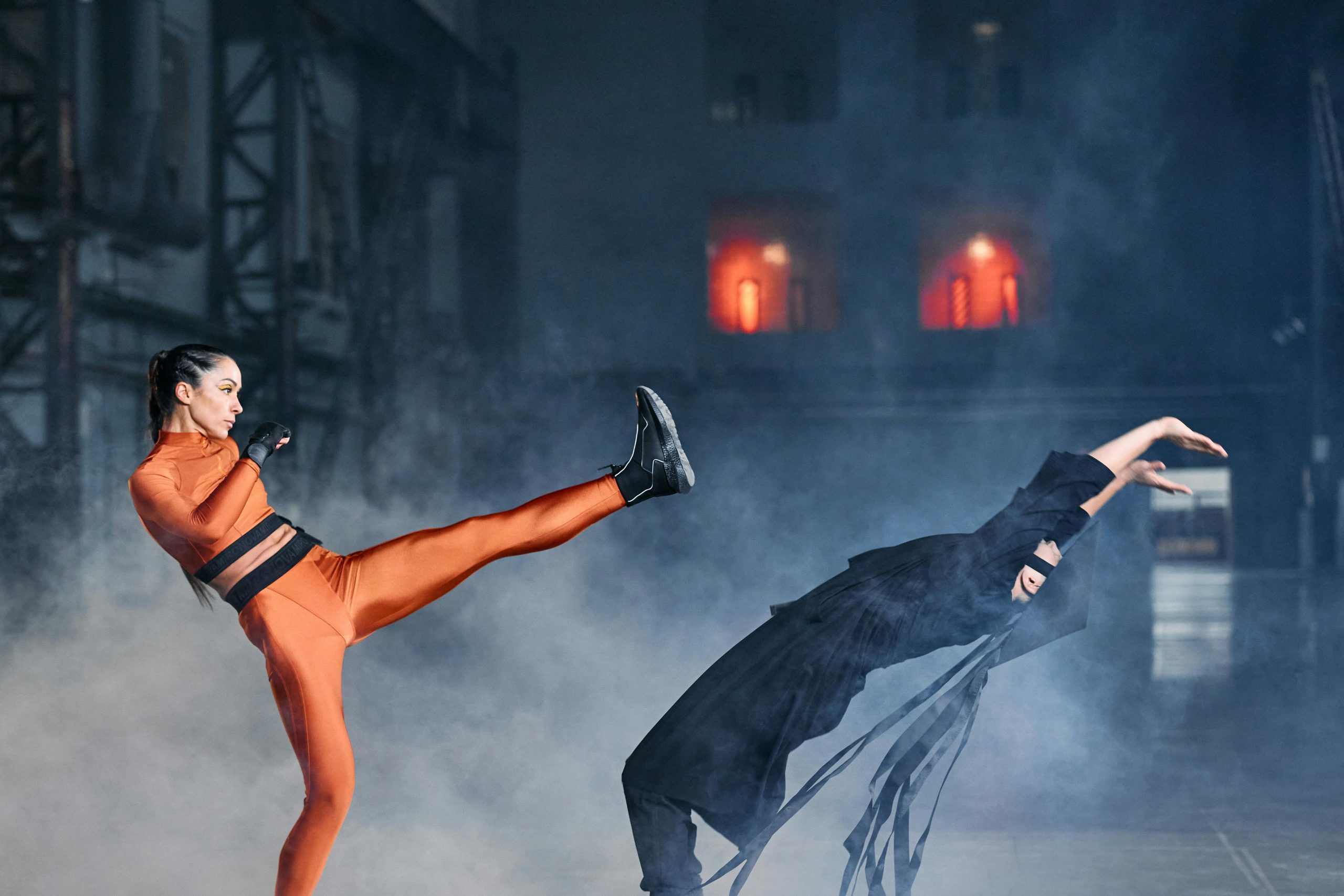Fashion entrepreneurship is a dynamic and exciting field that combines the creativity of fashion design with the strategic mindset of business management. As the fashion industry continues to evolve, there is a growing demand for innovative and entrepreneurial individuals who can identify market opportunities, create unique fashion products, and build successful fashion brands.
Whether you dream of launching your own fashion label, starting a boutique, or pioneering sustainable fashion initiatives, a career in fashion entrepreneurship offers a wealth of possibilities for creative and business-minded individuals.
Fashion Designer Entrepreneur
One of the most coveted roles in the fashion entrepreneurship realm is that of a fashion designer entrepreneur. This position combines the artistic flair of fashion design with the business acumen required to launch and manage a successful fashion brand.
Fashion designer entrepreneurs are responsible for creating original designs, overseeing production processes, managing supply chains, and marketing their collections to target audiences. By blending creativity with strategic thinking, fashion designer entrepreneurs can carve out a niche in the competitive fashion market and establish a distinct brand identity.
Fashion Retail Entrepreneur
Another lucrative avenue in fashion entrepreneurship is pursuing a career as a fashion retail entrepreneur. Retail entrepreneurs in the fashion industry are tasked with identifying consumer trends, curating product selections, managing inventory, and creating engaging retail experiences for customers.
Whether operating a physical store, an e-commerce platform, or a pop-up shop, fashion retail entrepreneurs must possess a deep understanding of consumer behavior, market dynamics, and retail operations. By leveraging their passion for fashion and keen business sense, fashion retail entrepreneurs can build successful retail ventures that resonate with their target audience.
Fashion Tech Entrepreneur
With technology playing an increasingly prominent role in the fashion industry, there is a rising demand for fashion tech entrepreneurs who can innovate at the intersection of fashion and technology. Fashion tech entrepreneurs leverage cutting-edge technologies such as virtual reality, augmented reality, artificial intelligence, and 3D printing to revolutionize the way fashion products are designed, produced, marketed, and consumed.
By staying abreast of technological advancements and consumer preferences, fashion tech entrepreneurs can disrupt traditional fashion paradigms and drive innovation in the industry.
Fashion Sustainability Entrepreneur
As sustainability becomes a key focus in the fashion industry, fashion sustainability entrepreneurs play a crucial role in promoting eco-friendly and socially responsible practices within the sector. These entrepreneurs are dedicated to implementing sustainable sourcing, production, and distribution methods that minimize environmental impact and support ethical labor practices.
By championing sustainability initiatives, fashion sustainability entrepreneurs can appeal to a growing segment of environmentally conscious consumers and contribute to a more sustainable future for the fashion industry.
Fashion Marketing Entrepreneur
A career as a fashion marketing entrepreneur offers individuals the opportunity to blend their passion for fashion with their expertise in marketing and branding. Fashion marketing entrepreneurs are responsible for developing strategic marketing campaigns, creating compelling brand narratives, and engaging with target audiences through various channels.
By leveraging their creativity, analytical skills, and market insights, fashion marketing entrepreneurs can elevate brand awareness, drive customer engagement, and enhance brand loyalty in the competitive fashion landscape.
Fashion Accessories Entrepreneur
For individuals with a penchant for accessories design, pursuing a career as a fashion accessories entrepreneur can be a rewarding path in the fashion entrepreneurship realm. Accessories entrepreneurs specialize in designing and creating a wide range of fashion accessories, including jewelry, handbags, footwear, hats, and belts.
These entrepreneurs must possess a keen eye for design, an understanding of materials and craftsmanship, and a knack for trend forecasting. By developing unique and desirable accessory collections, fashion accessories entrepreneurs can establish their brands as must-have accessories destinations for fashion enthusiasts.
Fashion Consulting Entrepreneur
Fashion consulting entrepreneurs provide valuable expertise and guidance to fashion brands, retailers, designers, and industry professionals seeking strategic advice and insights. These entrepreneurs offer services such as trend forecasting, brand positioning, market research, retail strategy, and product development to help clients navigate the complexities of the fashion industry.
By leveraging their industry knowledge, networks, and analytical skills, fashion consulting entrepreneurs can assist clients in achieving their business goals and staying ahead of market trends.
Fashion Event Planning Entrepreneur
Event planning is a vital component of the fashion industry, with fashion shows, launches, pop-up shops, and trunk shows requiring meticulous planning and execution. Fashion event planning entrepreneurs specialize in organizing and managing fashion events, from conceptualization to implementation.
These entrepreneurs coordinate venue selection, guest lists, invitations, runway production, styling, and media coverage to ensure successful and memorable fashion events. By delivering seamless and impactful events, fashion event planning entrepreneurs can help brands enhance their visibility, engage with their audience, and create buzz within the industry.
Fashion Media Entrepreneur
In the age of digital media and social platforms, fashion media entrepreneurs play a pivotal role in shaping the narrative and discourse around fashion. These entrepreneurs establish fashion media platforms, including blogs, magazines, podcasts, and social media channels, to share industry insights, trends, and creative content with a global audience.
By producing high-quality and engaging fashion content, fashion media entrepreneurs can attract followers, build communities, and collaborate with brands to amplify their reach and influence within the fashion ecosystem.
Fashion Licensing Entrepreneur
Fashion licensing entrepreneurs specialize in acquiring and managing licensing agreements for fashion brands and intellectual properties. These entrepreneurs collaborate with designers, brands, and manufacturers to develop licensed products such as apparel, accessories, fragrances, and home goods under established fashion labels.
By leveraging the brand equity and recognition of established fashion names, fashion licensing entrepreneurs can expand the reach of fashion brands into new product categories and markets. Through strategic partnerships and licensing deals, fashion licensing entrepreneurs can generate additional revenue streams and extend the brand presence of fashion labels.
Conclusion
Fashion entrepreneurship offers plenty of opportunities for individuals passionate about fashion and eager to make their mark in the industry. Whether you aspire to launch your own fashion brand, innovate with technology, champion sustainability, or excel in marketing and retail, a career in fashion entrepreneurship allows you to combine your creative talents with business acumen to drive success and innovation in the dynamic world of fashion.
As the fashion industry continues to evolve and embrace new trends and technologies, fashion entrepreneurship remains a vibrant and rewarding path for aspiring entrepreneurs looking to leave a lasting impact on the fashion landscape.
Key Takeaways:
- Fashion entrepreneurship blends creativity with business strategy, offering diverse career paths in a rapidly evolving industry.
- Roles range from design-focused (fashion designer, accessories entrepreneur) to business-driven (retail, licensing, consulting, marketing).
- Emerging opportunities exist in fashion tech (AR, VR, AI) and sustainability, meeting growing consumer demand for innovation and eco-conscious practices.
- Success requires industry knowledge, creativity, market insight, and adaptability to changing trends.
- The field rewards those who can identify market opportunities, build strong brands, and create unique products or experiences.
Consider enrolling in the Parsons Fashion Industry Essentials online course and certificate program by Yellowbrick to gain advanced industry insights and enhance your career prospects.








